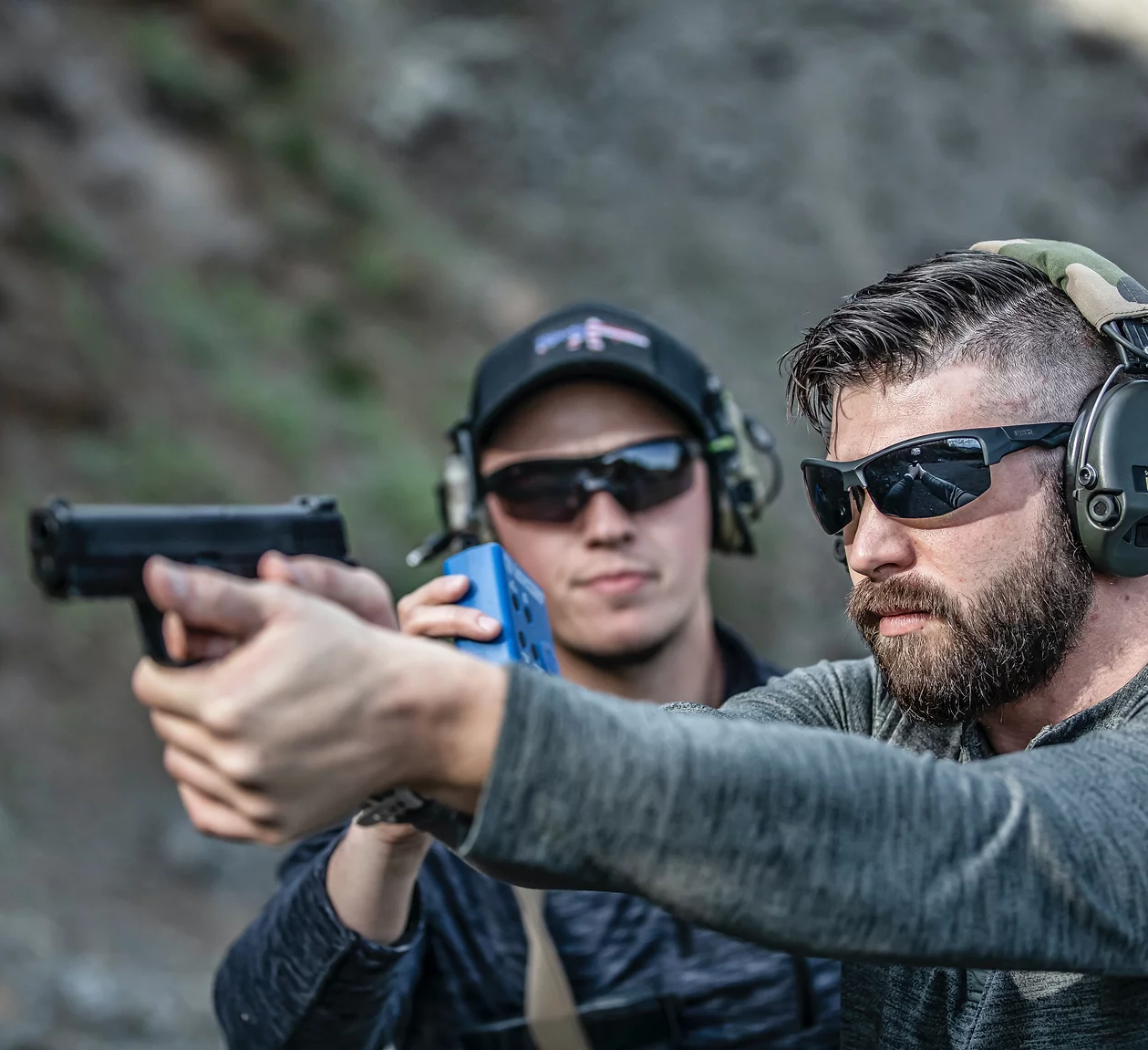Gun ownership and firearm training are subjects of paramount importance, and understanding the legalities surrounding them is crucial for residents of Southern Maryland. PTPGUN, your trusted source for firearms training, aims to provide comprehensive guidance on the legal aspects of gun training in this region. This article will delve into the essential legal considerations, regulations, and requirements for individuals seeking gun training in Southern Maryland.
Maryland Firearm Laws:
Southern Maryland falls under the jurisdiction of Maryland state laws, which have some unique regulations concerning firearms. Understanding these laws is vital before enrolling in any gun training program. Key points to consider include:
Firearm Purchase: Maryland requires a background check and a seven-day waiting period for all firearm purchases, except for qualified law enforcement officers and active-duty military personnel.
Handgun Qualification License (HQL): Before purchasing a handgun, residents must obtain an HQL, which involves completing a training course, submitting fingerprints, and passing a background check.
Concealed Carry Permits: Maryland issues concealed carry permits for residents who can demonstrate a “good and substantial reason” for carrying a concealed handgun. Proper training is essential to meet the requirements for this permit.
Assault Weapons Ban: Maryland has strict regulations on assault weapons and high-capacity magazines. Understanding what constitutes an assault weapon is critical for legal compliance.
Firearm Transportation: Transporting firearms in Maryland requires adherence to specific rules, including keeping the firearm unloaded and in a secure container during transportation.
Choosing a Gun Training Program:
When seeking firearms training in Southern Maryland, it’s essential to select a reputable and licensed training program. Here are some key factors to consider:
Instructor Qualifications: Ensure that the instructors are certified and experienced in providing firearm training. They should possess the necessary credentials and be knowledgeable about Maryland’s firearm laws.
Curriculum: Review the training curriculum to ensure it covers essential topics, including firearm safety, legal aspects, marksmanship, and situational awareness.
Range Facilities: Check if the training program has access to a suitable shooting range where you can practice safely and legally.
Reviews and Recommendations: Seek recommendations from others who have taken the training program and read online reviews to gauge the program’s quality.
Legal Compliance: Confirm that the training program adheres to all state and federal regulations regarding firearms training.
Legal Aspects of Firearm Training:
Understanding the legalities of gun training in Southern Maryland involves more than just firearm regulations. It also encompasses various legal considerations specific to training:
Age Restrictions: In Maryland, individuals must be at least 18 years old to possess a regulated firearm and 21 years old for a handgun.
Firearm Safety Act Training: To obtain an HQL in Maryland, applicants must complete a certified firearm safety training course. Ensure that your chosen program meets this requirement.
Range Rules and Etiquette: Familiarize yourself with the rules and etiquette of shooting ranges to avoid accidental violations of range safety protocols.
Non-Resident Training: If you are a non-resident of Maryland, be aware that you may have different training and firearm ownership requirements. Consult with legal authorities or experts to ensure compliance.
Concealed Carry Considerations:
For residents of Southern Maryland interested in obtaining a concealed carry permit, there are additional legal aspects to understand:
Good and Substantial Reason: Maryland’s concealed carry permits require applicants to demonstrate a “good and substantial reason” for carrying a concealed handgun. This can be a complex legal aspect, and applicants must provide documentation supporting their reason.
Training Requirements: Proper firearm training is a crucial component of applying for a concealed carry permit. Ensure that your training program covers the required topics and provides a certificate of completion.
Application Process: Familiarize yourself with the application process for a concealed carry permit, including fees, background checks, and required documentation.
Reciprocity: Maryland does not have reciprocity agreements with many states. This means that your Maryland concealed carry permit may not be valid in other states. Research reciprocity agreements if you plan to travel with a concealed firearm.
Legal Responsibilities of Gun Owners:
Owning a firearm comes with significant legal responsibilities. Understanding these responsibilities is essential for anyone who undergoes gun training in Southern Maryland:
Safe Storage: Maryland law requires firearms to be stored securely, especially if there are minors in the household. Failure to do so can result in legal consequences.
Reporting Stolen Firearms: If your firearm is stolen, report it to law enforcement promptly. Failing to do so may lead to liability if the firearm is used in a crime.
Use of Deadly Force: Maryland law allows the use of deadly force in self-defense situations under specific circumstances. Understanding when deadly force is legally justifiable is critical.
Firearm Transfers: If you plan to transfer a firearm to another individual, you must follow the legal process, which includes background checks and reporting the transfer to the Maryland State Police.
Stay Informed and Updated:
Laws and regulations regarding firearms are subject to change, so it’s essential to stay informed and updated on any legislative developments. PTPGUN recommends the following steps:
Join Firearm Advocacy Groups: Joining a firearm advocacy group can help you stay informed about legislative changes and participate in efforts to protect your rights.
Regularly Check Government Websites: Periodically visit the Maryland State Police website and other relevant government sources to stay updated on firearm laws and regulations.
Consult Legal Experts: If you have any legal questions or concerns about firearm ownership and training, consider consulting with legal experts who specialize in firearms law.
Conclusion: Understanding the legalities of gun training in Southern Maryland is a fundamental step for anyone interested in firearms ownership and responsible use. PTPGUN is dedicated to providing you with the knowledge and training necessary to comply with Maryland’s firearm laws while ensuring your safety and the safety of those around you. By following these guidelines and staying informed, you can navigate the legal landscape of firearm training and ownership with confidence and responsibility.



